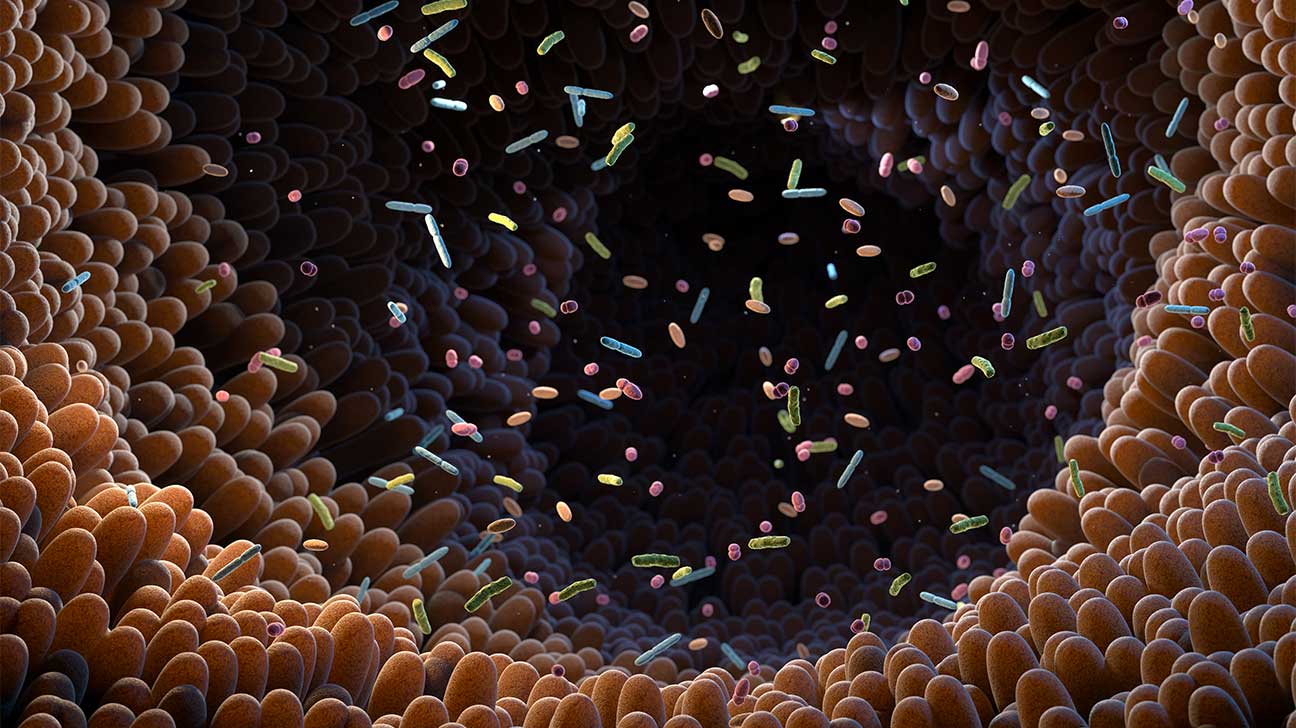
Addiction is a mental health condition, but it also has physical components. For example, physical withdrawal symptoms may cause people to return to drugs for relief.
Recently, researchers have discovered new insight into yet another physical aspect of addiction: the relationship between substance abuse and the gut microbiome.
What Is The Gut Microbiome?
The “gut” refers to the stomach and intestines, which form the digestive system.
This system contains trillions of living organisms such as bacteria and fungi, and these organisms form the gut microbiome. The microbiome contains both “good” and “bad” organisms.
In healthy individuals, the good organisms generally outnumber the bad ones, providing health benefits. They help digest food, synthesize nutrients, and support the immune system.
However, the microbiome can lose its balance due to illness, diet, stress, and certain types of medication.
When this happens, bad bacteria can flourish, causing health difficulties and disease.
The Gut Microbiome And The Risk Of Substance Abuse
Research suggests that gut health affects mental health through the gut-brain axis, which is the pathway of communication between the brain and the gastrointestinal (GI) tract.
Research indicates that the GI tract releases neurotransmitters, which are chemicals that regulate mood. It may also release chemicals such as cytokines, which cause inflammation.
While inflammation is important for short-term healing, prolonged inflammation can worsen disease, including mental health conditions such as depression.
Mental illness and poor mood regulation are significant risk factors for SUDs. Often, people consume substances to combat feelings of sadness, numbness, and loneliness.
When an imbalanced gut microbiome worsens these feelings, it can make the person more vulnerable to substance abuse.
How Substance Abuse Affects The Gut Microbiome
Substance abuse may create a vicious cycle for the gut microbiome. This cycle may worsen addiction complications and hinder the recovery process.
Microbiome Imbalance
According to the American Society for Microbiology, certain drugs are associated with gut microbiome imbalances. As good bacteria are reduced, harmful bacteria increase.
Opioid medications, for example, have some of the strongest links to microbiome imbalance. As a result, they often create GI-related side effects.
The exact link between substance abuse and microbiome difficulties is unclear. However, when the microbiome is harmed, as noted above, this can worsen mental health challenges such as addiction.
Indirect Effects
Substance abuse may also affect the gut microbiome indirectly, through unintentional consequences and side effects.
For example, stimulant drugs such as cocaine and methamphetamine often cause sleeplessness, and poor sleep can stop good bacteria from thriving.
These drugs can also cause appetite loss, leaving good bacteria without the food sources they need to continue surviving.
Other substances, such as cannabis, can increase the appetite, causing cravings for processed, high-sugar foods that favor harmful bacteria.
Can The Gut Microbiome Improve Recovery Outcomes?
Research on the relationship between addiction and the gut microbiome is new, but it is also promising.
It is unclear whether gut-focused practices can improve the SUD recovery process directly.
However, having a healthy gut can certainly improve sleep, energy, and emotional wellbeing, and each of these factors can support long-term recovery.
If you are currently in recovery, you might ask your doctor about adding a probiotic to your diet, which can support your gut microbiome. You can also consume probiotics via food sources such as yogurt.
These changes may prove especially helpful if you also experience GI issues.
Recover From Substance Abuse And Addiction
Although researchers don’t have the full picture on the gut microbiome and substance abuse, they do know that addiction is a treatable condition.
Treatment options such as medication-assisted treatment, cognitive behavioral therapy, and other evidence-based practices can help you sustain your recovery.
If you or a loved one require addiction care, contact Free Rehab Centers today to learn more.
Published on July 20, 2023
Free Rehab Centers aims to provide only the most current, accurate information in regards to addiction and addiction treatment, which means we only reference the most credible sources available.
These include peer-reviewed journals, government entities and academic institutions, and leaders in addiction healthcare and advocacy. Learn more about how we safeguard our content by viewing our editorial policy.
- American Society For Microbiology
https://asm.org/Articles/2023/April/The-Gut-Microbiome-and-Drug-Addiction-An-Emerging - National Library Of Medicine
https://www.ncbi.nlm.nih.gov/pmc/articles/PMC5641835/ - National Library Of Medicine
https://www.ncbi.nlm.nih.gov/pmc/articles/PMC4425030/
